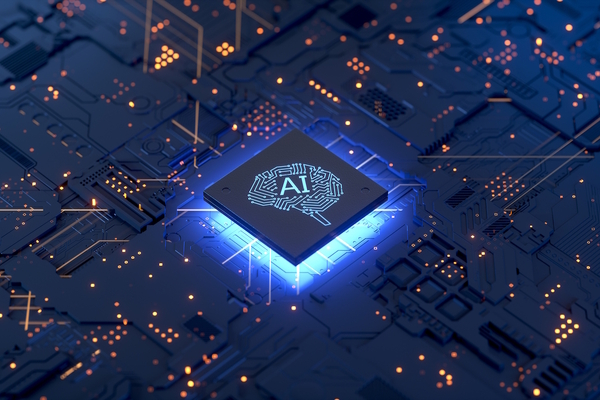How AI is transforming the freelance market

Matti Yahav at Fiverr argues that we are all at the same starting gate of AI, but only some of us will use it to propel our careers
As the world of work and business rapidly evolves with the advancement of AI technologies, we need to redefine our roles to stay relevant. Eighteen months ago, when AI became widely accessible, we found ourselves at the start of a transformative era. Opinions were divided: some viewed it as a challenge, while others, like myself, saw it as an exciting opportunity.
I want to share why I belong to the latter group and why this is merely the latest in a series of technological revolutions that we should embrace rather than fear.
Roles that don’t exist anymore
In the 80s, when I was a teenager, the cool job everyone wanted to do was to work in record shops, magical places filled with vinyl records and later CDs, where people could explore the latest music releases and chat with other fascinating people who shared that passion. Back then the people working there were the gatekeepers of culture.
In the last 20 years, those record shops closed and those jobs transformed. The cool young people of today might be social media managers, a role that didn’t exist back then and that no business leader could have imagined needing.
One of the most sought-after jobs in the 50s and 60s was that of a punch card operator. These operators played a crucial role in the early days of computing, entering data into mainframe computers using punch cards. Operators by the tens of thousands would spend a full shift keypunching cards. Today’s comparable replacement job might be a website builder.
Going back further, telephone switchboard operators were at the cutting edge of technology and pivotal in connecting every telephone call manually from the 1930s for several decades. These roles required people who could handle complex technology and stressful situations, for example, the work done by a digital project manager today.
When millions of jobs were lost
Thinking about businesses that don’t exist anymore and jobs that were unthinkable many years ago, we can highlight the significant shifts at crucial moments in human history.
One example is the Industrial Revolution when millions of people changed their jobs. Human (and animal) labour transformed into types of machinery, such as steam engines. The Industrial Revolution renewed global economic growth and increased production and consumer consumption.
Similarly, the dot-com revolution of the 1990s marked another significant shift, creating entirely new job sectors overnight. New roles such as web developers and digital marketers emerged, reshaping our economy and how we interact with the world.
Today, we stand on the brink of the AI revolution. Some of us may find our roles evolving beyond recognition in the next few years. We have to remember that many jobs that existed for previous generations no longer exist today. The disappearance of some jobs and the appearance of new ones is a natural part of economic evolution.
Every cycle becomes more dramatic
Going through all these technological revolutions we can notice that the pace is accelerating dramatically. Historically, it might have taken decades for new technologies to be adopted but now, it can happen in just a few months. The adoption and development of AI, have surged at an unprecedented rate, showcasing both rapid exploration and dramatic advancements.
The current AI revolution is set to transform countless jobs replacing many human tasks. Yet, this shift also opens up vast new opportunities, especially in freelancing.
Since the onset of AI’s rise, Fiverr’s data underscores a compelling trend: a significant uptick in businesses seeking freelancers who bring a human touch to AI-generated content. This trend demonstrates freelancers’ resilience and adaptability and emphasises the persistent demand for the unique human element that AI cannot replicate.
Balancing efficiency with human expertise
Despite concerns that artificial intelligence could displace people and drastically alter traditional roles, the reality is that AI is changing the nature of labour rather than creating new jobs and potentially allowing businesses to raise the bar in a variety of ways by enabling more flexibility and increased efficiency.
However, organisations must acknowledge how artificial intelligence will impact various industries and adapt accordingly. When considering how to implement AI or AI experts into your enterprises, keep in mind that the function of AI will differ significantly depending on whether you work in the software industry or the financial industry for example.
Recent data from Fiverr since the onset of AI’s rise underscores a compelling trend: a significant uptick in businesses seeking freelancers who bring a human touch to AI-generated content. This trend demonstrates freelancers’ resilience and adaptability and emphasises the persistent demand for the unique human element that AI cannot replicate.
In our most recent UK Workforce Index study, nearly a third of business leaders were seeking AI skills for their business, underlying just how in demand and sought after these skills were for businesses today. And businesses are happy to pay the price too. In the same study, we found over 80% of UK businesses are actively increasing their wages for AI skills
Go beyond the AI basics
To fully leverage the benefits of AI, businesses must go beyond basic adoption and engage with its features deeply. Use AI’s outputs as a starting point, and strive for creativity and originality rather than settling for average results. This ensures we push boundaries, creating new jobs, innovative products, and transformative work methods. Adaptability in the AI era requires creativity and analytical thinking, curiosity, resilience, and agility.
Nowadays, adapting to new technologies and market dynamics is essential, and AI tools accelerate this process.
Matti Yahav is the CMO at Fiverr
Main image courtesy of iStockPhoto.com and Eva-Katalin

Business Reporter Team
Most Viewed
Winston House, 3rd Floor, Units 306-309, 2-4 Dollis Park, London, N3 1HF
23-29 Hendon Lane, London, N3 1RT
020 8349 4363
© 2024, Lyonsdown Limited. Business Reporter® is a registered trademark of Lyonsdown Ltd. VAT registration number: 830519543





